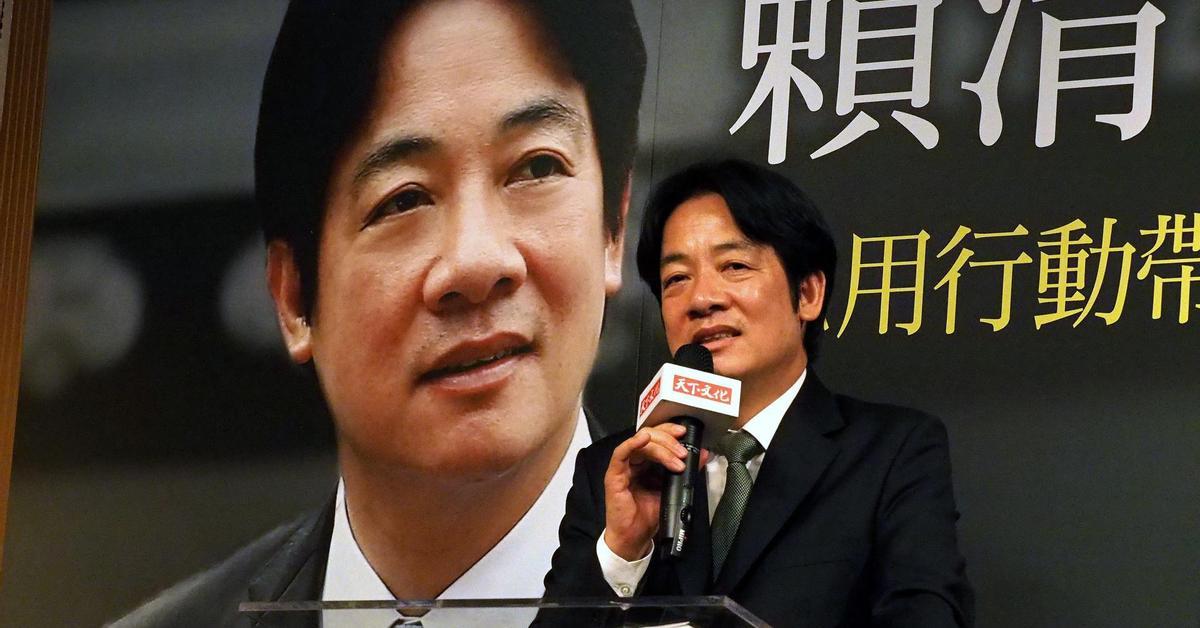
The presidential candidate of Taiwan of the ruling Democratic Progressive Party (DPP), William Lai (Lai Ching-te), has obtained 40.3% of the votes, according to data from the Central Election Commission (CEC). The current vice president of the island has thus prevailed over the opposition candidates of the Kuomintang (KMT) and the People’s Party of Taiwan (PPT).
With 96% of the tables counted, Lai has easily surpassed the opposition candidates Hou Yu-ih (KMT), who obtained 33.4% of the votes, and Ko Wen-je (PPT), with 26%. .3% of ballots. Both have already appeared publicly to acknowledge their defeat.
This result marks an unprecedented victory in Taiwan’s democratic history, which will see for the first time the same party presiding over the island for three consecutive terms since the first democratic elections in 1996.
Lai, the candidate despised by China
The elections have also confirmed the victory of the candidate most despised by China. Lai has been described by the Beijing government as “a complete troublemaker” and “separatist”, so his next administration will mark diplomatic relations both with China and in the entire region.
Taiwan, an island governed autonomously since 1949 and considered a rebellious province by China, is a point of historical tension in Asia and also between the governments of Washington and Beijing. While China pursues the “reunification” of the territory of Taiwan, the US has traditionally guaranteed that it will defend Taiwan in the event of an invasion by Beijing.
In this context, Lai’s candidacy meant the continuity of the previous government, which has opted to strengthen its relations with the United States, compared to the opposition leader of the Kuomintang, Hou You-yi, who has defended an opening towards China with the aim of also increase economic ties.

The current president of Taiwan, Tsai Ing-wen (PDP), had held the island’s highest office since 2016, but could not run for a third term due to constitutional limitations. More than 19.5 million Taiwanese were called to the polls to elect their new president, in a context marked by the worsening of tensions with China.
The PDP candidate, who defined himself in the past as a “pragmatic worker for Taiwan independence,” has presented these elections as a struggle between “democracy” and “autocracy,” while the KMT candidate has reiterated that only an opposition victory, more inclined to dialogue with Beijing, could avoid a “war” with China.

Opposition candidates recognize Lai’s victory
“I respect the final decision of the people of Taiwan. I congratulate Lai and Hsiao (Bi-khim). Please do not fail the expectations of the Taiwanese,” Hou said from the KMT headquarters, where he appeared accompanied by several members of his party, EFE reports.
During his speech, in which he was visibly moved, Hou called on the new Government “to listen to the voices of the Taiwanese”, while urging them to maintain “unity” in times of “crisis” in the Strait of Taiwan. Formosa.
“The only thing I wanted to do was unite Taiwan, that’s my hope. I have strong feelings about Taiwan facing the cross-strait crisis. We really must face these problems, so that the people of Taiwan can live in peace,” said the former mayor of New Taipei.
In a more festive tone, Ko Wen-je has publicly thanked his followers for the support received in recent weeks, despite the “attacks” received by the other two forces in the fray. “Tomorrow I will continue getting up at 7:30 to go to work,” he said.
During this day, the Taiwanese also voted to renew the 113 seats that make up the Legislative Yuan (Parliament), whose new configuration will be known during the night.
Source: www.eldiario.es

